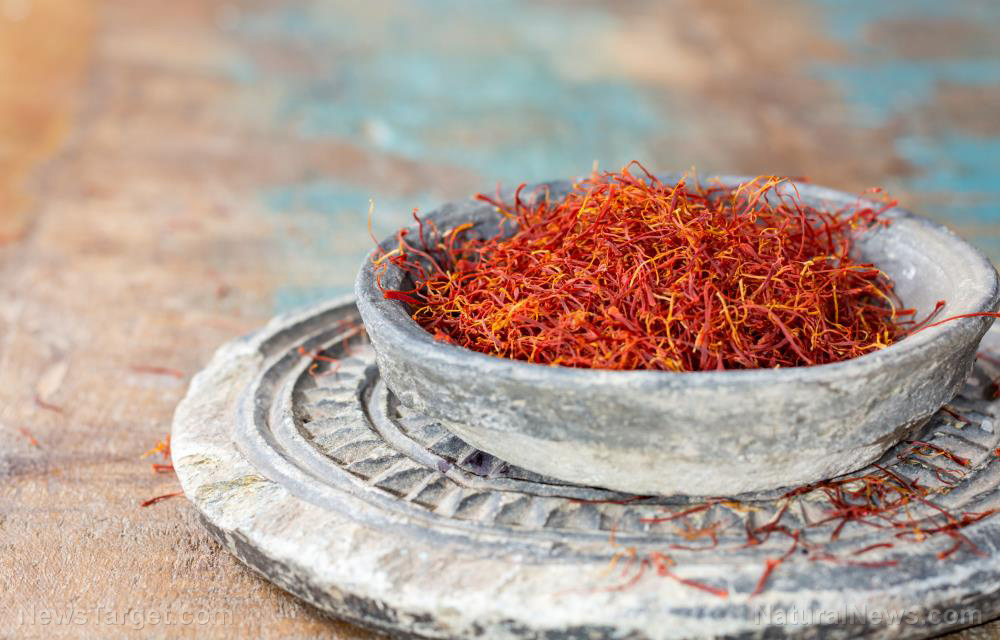Can gluten aggravate the symptoms of rheumatoid arthritis?
02/17/2020 / By Ralph Flores

Rheumatoid arthritis (RA), an autoimmune disease that affects the lining of the joints, is a condition that affects around 1.3 million Americans. While the etiology of rheumatoid arthritis is still unclear, experts have found that diet can play a factor in the onset of “flares” – or the sudden worsening of symptoms – for patients.
People with rheumatoid arthritis report that cutting back on “pro-inflammatory” foods greatly helps with controlling their symptoms. In particular, they noted that eating gluten often causes flares, which is similar to what people with celiac disease experience. For those with this severe form of gluten intolerance, eating gluten can trigger an immune response in the small intestine, which damages and prevents it from absorbing nutrients.
So, is there a link between RA and gluten?
Dietary approaches for treating RA
Multiple studies have explored whether RA can be treated with diet, and the results have been promising. For instance, researchers from the Karolinska University Hospital (formerly the Huddinge University Hospital) in Stockholm revealed that a vegan diet has positive effects in addressing the symptoms of RA. In the study, the team divided 66 RA patients into groups that received either a gluten-free diet or a well-balanced non-vegan diet. After the one-year study, they found that those who ate a vegan diet had markedly improved their symptoms, with researchers noting a decrease in biomarkers for RA compared to baseline.
“The present and earlier studies lend some support to the notion of a beneficial effect of vegetarian diets in at least some patients with RA,” the team concluded in their report. “This benefit may be related to a reduction in immunoreactivity to food antigens eliminated by the change in diet.”
In another report, Elena Philippou of the University of Nicosia in Cyprus also highlighted the potential of gluten-free diets in treating rheumatic diseases (RMD) like ankylosing spondylitis, systemic lupus erythematosus, psoriatic arthritis and rheumatoid arthritis. After reviewing published works from MEDLINE, she found that an increase in plant-based foods like legumes, fruits and vegetables, as well as adding omega-3-rich foods like oily fish and nuts, can be a potential adjunct to treatments for rheumatic diseases. (Related: Gluten Intolerance Leads to Cancer, Heart Disease and Death, Research Shows.)
“Adherence to a healthy diet can aid in disease management in RMDs by reducing inflammation and the risk of cardiovascular disease,” she wrote in her report.
It’s worth noting, that people with RA are more likely to have celiac disease. Studies have revealed that the antibodies that are present in those with the condition also appear in people with RA. To note, experts also found an overlap between the two diseases: People with celiac disease often have biomarkers for rheumatoid factors – and vice versa.
Consume these foods to reduce RA flares
It doesn’t mean that people with RA have a gluten intolerance. However, those with both can benefit from removing gluten in their everyday diet. Most food groups, for instance, don’t contain gluten. Examples of these are:
- Fruits and vegetables
- Meat and poultry
- Seafood
- Beans, legumes and nuts
It’s also worth noting that not all grains contain gluten – such as rice, sorghum, corn, millet, quinoa and amaranth, to name a few.
Most people with gluten intolerance tend to stay away from bread and baked goods since the gluten in wheat and rye is what gives them shape. That’s not to say that they can’t enjoy or even make their own bread, with flours made from potato, flax or nuts readily available. However, note that commercial “gluten-free” flour is made using the same equipment for packaging grains, which can lead to contamination.
Finally, head over to FoodScience.news to learn more about gluten and its effects on the body.
Sources include:
Submit a correction >>
Tagged Under:
arthritis cures, autoimmune diseases, celiac disease, food cures, food is medicine, food science, gluten, inflammation, joints, nutrients, rheumatoid arthritis
This article may contain statements that reflect the opinion of the author
RECENT NEWS & ARTICLES
GroceryCures.com is a fact-based public education website published by Grocery Cures Features, LLC.
All content copyright © 2018 by Grocery Cures Features, LLC.
Contact Us with Tips or Corrections
All trademarks, registered trademarks and servicemarks mentioned on this site are the property of their respective owners.





















